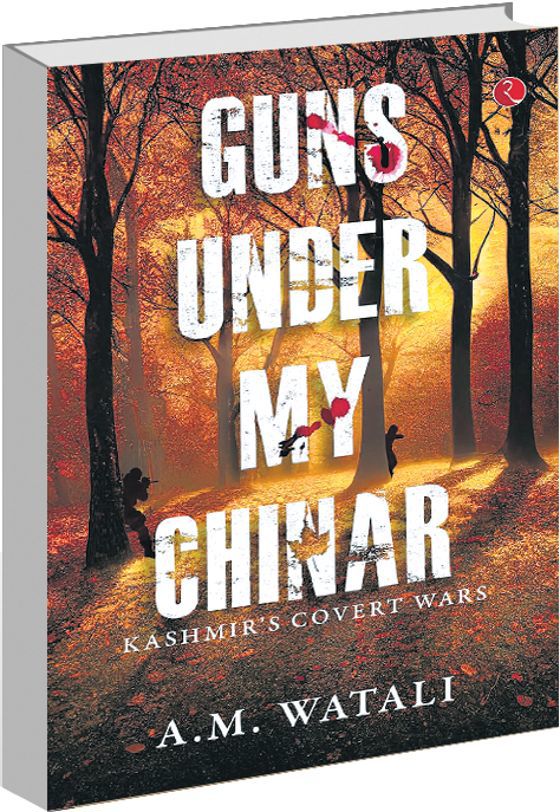Guns Under My Chinar: A Glimpse into Covert Realities by AM Watali. Rupa. Pages 240. Rs 595
Book Title:
Jupinderjit Singh
The beginning of terrorism in any region is usually considered the time when the first shot was fired or the first bomb was planted. In Punjab, the Baisakhi Sikh-Nirankari clash in 1978 is often termed the beginning of the dark days. In Kashmir, the series of demonstrations, strikes and attacks on Indian government officials in 1988 are referred to as the starting point.
But much before such action surfaced on the ground, the evil schemes and intrigues always lurked in the shadows. In ‘Guns Under My Chinar’, former DGP of Jammu and Kashmir AM Watali narrates his memoirs through a vast cast of anti-nationals, their tales intricately woven with covert and overt activities. Then there are the exploits of spies, hidden agents, the dirty role of politicians and the known and unknown assassination attempts — a realm known only to those with an ear to the ground and a rare access to the ‘hidden truths’.
However, the narrative often becomes entangled in a web of names, where the writing style occasionally resembles a media briefing. Characters emerge on every page, yet they depart without deeper details, nuances and descriptions, leaving readers to sift through previous pages to understand the context.
Yet, once you navigate this maze, a revelation awaits: long-drawn terrorist movements are not orchestrated by the visible alone. Before the visible, there existed a cadre of underground workers and ideologues, while the authorities remained blissfully unaware of the impending storm.
An ironic part of any police officer’s job is that no one notices the good work if all goes well, but hell breaks loose even over a small mistake.
Watali insists that simple policing like making security arrangements for a VIP visit helps in avoiding trouble, including an assassination attempt on the Prime Minister that even the security forces had no clue about. Sadly, the anecdote ends with an error. The writer writes that khaki saved Indira Gandhi that day, but khaki took her life eventually in 1985. The assassination took place in October 1984.
For those keen to research on Kashmir, the book can prove to be a good repository of names, whose life and actions one can look into to get a better understanding of the issues at hand.














